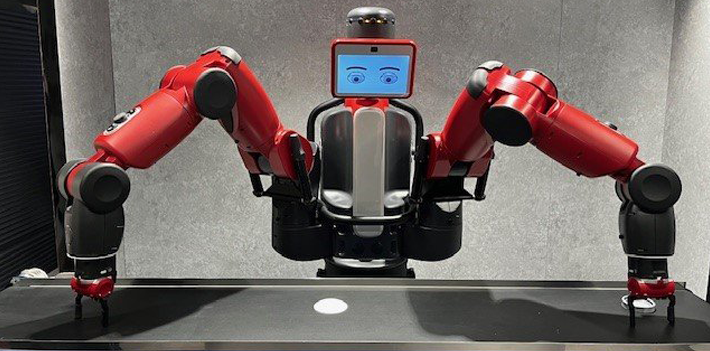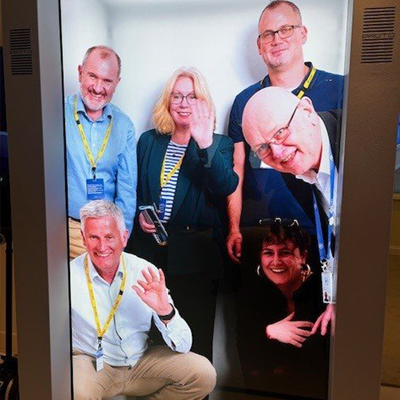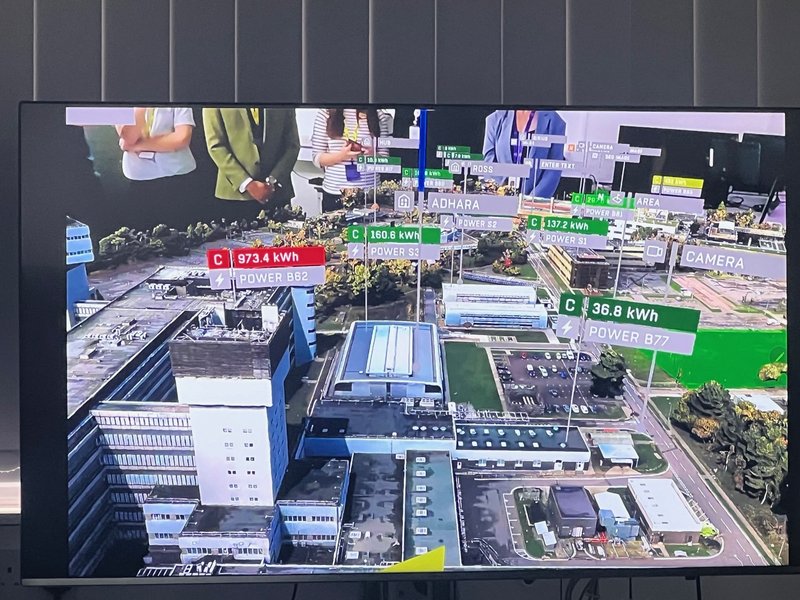Data, drones, AI and more - exploring the future of technology with BT
Our latest Immersion Tour visit to BT’s Adastral Park has already led to senior FE and HE leaders effecting positive change at their institutions
Collaboration between industry and education is vital for learners to gain the skills they need to succeed in a digitally enabled workplace. Institutions may also receive operational benefits from working with business, such as greater access to resources, industry experts and training, as well as shared cost efficiencies.
As we journey towards a new age of digital enlightenment, technologies such as artificial intelligence (AI) and extended reality (XR) are evolving how we learn, and work, at pace - with little sign of slowing down.
For colleges and universities, this is where industry partnerships can be truly transformational, helping them deliver positive results to benefit both economies and communities.
History and innovation at the heart of Adastral Park
One of the many ways we supports members is by immersing senior further and higher education (FE and HE) leaders in cutting-edge industries to experience firsthand how digital innovation is applied. This develops greater understanding of how technologies can be utilised back at their own institutions and highlights the skills employers are looking for.
Having already visited tech giants including Amazon and Siemens, BT’s Adastral Park campus was chosen as the ideal location to host the next Immersion Tour.
The 100-acre campus is home to more than 150 high-tech companies developing solutions such as quantum computing, hollow core fibres and counter-drone technology. With a strong link to education and skills throughout, Adastral Park is a creative hub for educators and innovators.
Attendees including Anna Sheldrake, director of digital at the University of Suffolk, Ranjit Singh, vice principal quality & learner experience at Hull College Group, Matt Fawcett, deputy principal planning, partnerships & projects at West London College, Alan Pease, principal and CEO at Suffolk New College and Jonathan Burl, head of IT operations at University of Suffolk, joined senior Jisc delegates and experts from BT at the Suffolk hub.

Highlights and insights
Innovation was top of the agenda for the day.
Attendees received an introduction to BT’s robotics and drones division, a visit to their research and development iLab and thought-provoking sessions on educational outreach and ‘science capital,’ people, productivity and planet and AI.
The 11 senior FE and HE leaders also had time to come together and discuss the challenges and opportunities facing tertiary education both now and in the future.
Anna Sheldrake said of the day:
“Jisc’s visit to Adastral Park was a well-designed, insightful event which offered an opportunity to discuss future technological developments, while also allowing space for discussions about key challenges such as the workforce of the future and its need for digital fluency.”
Ranjit Singh commented:
“The immersion tour event at Adastral Park was fascinating.
“Hearing from industry experts and having the opportunity to see the latest technological developments in action highlighted the importance of educators and industry experts working together in partnership to develop the skills needed to succeed in an evolving workplace.”

The benefits of collaboration
Many attendees said the visit sparked a desire for greater collaboration between education and industry, as well as improved cross-sector working to help them achieve their ambitions.
Matt Fawcett said:
“In order for education providers to stay abreast of dynamic, rapidly changing modern industry practices, it is critical to engage with employers in a truly symbiotic way.
“This will help shape, design and deliver the curriculum needed to support individuals in developing the skills, knowledge and behaviours to excel in the workplace.
“I am keen to arrange a further visit to BT with staff from West London College to help provoke alternative thinking in the design and implementation of our new digital strategy.”
Alan Pease said:
“Collaboration between education and employment is so important because it helps educators deliver the right skills to meet the current and future workforce needs of industry partners, especially those in skills shortage areas.
“Digital skills are in every local skills improvement plan (LSIP) and across every sector, so the digital literacy and capability of college leavers is paramount as they enter the workforce, ensuring they have the right skills to be able to make a digital contribution to the employers they are joining.
“Lack of digital skills and confidence in teachers is a concern across the sector, and there is a real opportunity for industry to support us in upskilling our teachers so they can pass these digital skills to our young people.”
Anna Sheldrake continued:
“The reality is that budgets are so tight in HE that we will always be slightly riding the coattails of better funded industries. The right collaborations can ensure we learn from the investments made by industry and gain essential insight into how to make the most impact with the money we have.”
Key takeaways and practical advice
Feedback from delegates shows key takeaways from the event are already being used to yield positive results at member organisations. Session content and the innovative technologies on show were highlighted as having led to improvements, beneficial changes and new ways of thinking.
Alan Pease continued:
“The innovation displayed on the day was astonishing and gave useful insight into how we might embed some of these new technologies in teaching, learning and assessment back at our respective colleges.
“To me, the presentation on the future (post-COVID) workforce was an unexpected bonus and provided some insightful analysis from BT, which I have already acted upon.
“At Suffolk, we thought we were nearing our buildings’ capacity at our Ipswich campus. It turns out that - whilst this may be the case on Tuesday, Wednesday and Thursday - we have significantly underutilised spaces on Monday (morning) and Friday (afternoon).
“Going forward, we will be using a PowerBI dashboard to look at how we might use our site resources more efficiently.”

Matt Fawcett continued:
“The day was full of rich content, and an amazing experience.
“As the lead for designing and implementing our new digital strategy at West London College, the sessions have helped me to take a step back and truly consider what we need to deliver to not only inform curriculum design, delivery and assessment but also to improve business processes and bring modernity to the overall operational effectiveness of the college.”
"Industry must consider the skills needed to solve future problems, all while dealing with skills shortages."
Imagining the future together
Mike Williams, customer centre, downstreaming research and innovation manager at BT believes collaboration between education and industry is vital for the future economy.
He said:
“Industry and education will need to become increasingly intertwined to form a robust and resilient economy.
“The challenge is that we need to educate students for jobs and roles that do not yet exist. 15 years ago, who had heard of a content creator, media influencer, cloud architects or data analysts/scientists and who thought you could make a living playing E-sports.
“Industry must consider the skills needed to solve future problems, all while dealing with skills shortages. This requires a different perspective from both academia and industry to ensure they are nurturing the right technical skills and, increasingly, soft skills. This will only ever be achieved via collaboration.”
Robin Ghurbhurun, UK managing director for further education and skills, nations, advice and training at Jisc, concluded:
"We would like to thank BT for hosting a stimulating day for Jisc members and staff. We chose to visit Adastral Park for its track record in innovation and the unique history of the site itself, and we were not disappointed.
“As ever, events like these are only useful if the insights provided lead to positive change upon return to member institutions. We are therefore delighted to hear this visit has already led to immediate action from delegates, as well as plans to use learnings from the day to enhance the future of their organisations.
“As the UK digital, data and technology agency for tertiary education and research we are on a mission to improve lives through digital transformation. Collaboration with industry through events such as Immersion Tours can prove vital to ensuring educators are delivering the skills needed for a competitive future workforce."
Our next Immersion Tour is being planned for the coming academic year (2024/25), so please contact us if you are interested in getting involved.